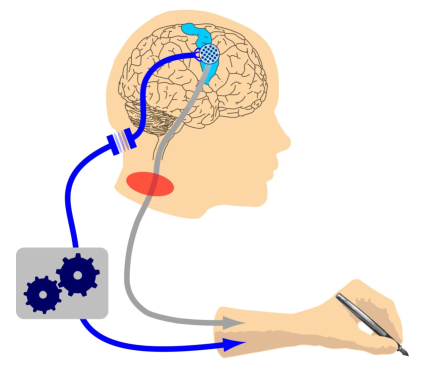Brain Machine Interfaces (BMI) to help allievate future neurology conditions
 Soon the day will come when technology and medicine meet. This nexus will enhance the quality of life for the patients that the technology can help. Medscape.com reports that “Brain-Machine Interface (BMI) technology” is one of the “Four Major Neurology Updates” from the American Academy of Neurology meeting held last month. Those affected by a variety of neurological related health issues like ALS, MS, and stroke rehabilitation are going to see dramatic improvements in their quality of life from BMI technology.
Soon the day will come when technology and medicine meet. This nexus will enhance the quality of life for the patients that the technology can help. Medscape.com reports that “Brain-Machine Interface (BMI) technology” is one of the “Four Major Neurology Updates” from the American Academy of Neurology meeting held last month. Those affected by a variety of neurological related health issues like ALS, MS, and stroke rehabilitation are going to see dramatic improvements in their quality of life from BMI technology.
BMI technology will allow patients with “serious neurologic conditions” to sustain control over a “robotic limb or a communication device.” Through the connection with the patient’s cortical tissue, that is then connected to the electronic device providing the technological functions.
As mentioned above, the most promising applications for BMI technology in medicine will serve patients with ALS, MS, and stroke. Patients who suffer from ALS could potentially benefit from the development and refinement of BMI technology, especially those “who have little or no reliable muscle movement, including some people with advanced ALS.” MS-suffers could benefit as well through further exploration of BMI applications, hopefully increasing the amount of activity that MS patients would be able to do by themselves. BMI technology offers rehabilitation opportunities for those who have suffered a stroke in two ways. One, as patients recover from their strokes, BMI’s can help to increase the redevelopment of neuroplasticity within the brain (rehabilitative BMI); and two, using BMI’s to help patients with limb function (assistive BMI).
Currently, substantive applications of BMI technologies are constrained to laboratory tests on patients and animals, and the advancement of BMI hinges on three areas according to a National Center for Biotechnology Information (NCBI) report: hardware development, functional success, and long-term patient application.




